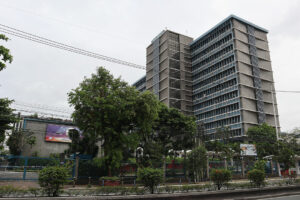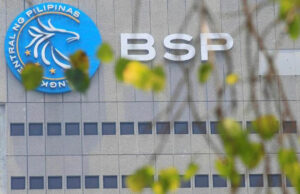Hog, rice industries say lowered tariffs produced no benefits, cut gov’t revenue

PORK PRODUCERS and rice farmers said lower tariffs for pork and rice failed to benefit consumers and producers, with retail prices remaining high.
“What we have heard from the National Economic and Development Authority (NEDA) is that lowering the tariff will benefit consumers. What we observed is that consumers didn’t benefit from it at all. There really are no savings. Our request is to help protect local producers. Imported manufactured goods competing with locally produced goods should, by law, face higher tariffs,” National Federation of Hog Farmers, Inc. President Chester Warren Y. Tan said at a virtual hearing called by the Tariff Commission.
The government sought to liberalize imports of these commodities via lower tariffs in response to an inflation crisis in 2021.
In May 2021, President Rodrigo R. Duterte signed Executive Order (EO) No. 134 and 135, lowering the tariffs on pork and rice imports from non-ASEAN countries from 50% to 35%.
A previous inflation crisis in 2018 led to the initial liberalization of the rice market, via the passage of the Rice Tariffication Law, or Republic Act 11203, the next year.
Mr. Tan said the hog sector would prefer to revert to the original tariff scheme.
Samahang Industriya ng Agrikultura Chairman Rosendo O. So said that the current tariff arrangement has caused the government to forego revenue it would have earned under the old tariff scheme.
“If the tariff of pork was not lower, the government should have collected around P22 billion on the imports of 2021. Because of the lowering of tariffs, we only collected around P10 billion. The government lost around P12 billion… Lowering tariffs did not help improve the retail price,” he added.
“Hog farmers… had to stop repopulation efforts (because of the imports). We are already telling the government, if there are many imports incoming, you will lose hog raisers,” he added.
The hog industry is still seeking to bounce back from the African Swine Fever outbreak, which thinned the Philippine herd and caused many growers to exit the business.
Federation of Free Farmers (FFF) National Manager Raul Q. Montemayor said that the reduction in tariffs on rice imports from non-ASEAN countries had no impact on overall prices and also resulted in foregone tariff revenue that could have been used to help rice farmers.
“There was no increase in rice supply from non-ASEAN sources despite cost advantages of some non-ASEAN exporters. There was a large number of supplier countries, but volumes were negligible,” he said.
“We hope the tariff outside ASEAN be made higher… Imports are not the solution, local produce is more dependable if only the government supported it,” Mr. So added.
In a statement, the FFF said that imports from non-ASEAN sources amounted to only 1.78% of total imports in 2021, down from 2.36% in the previous year, even though rice from India and Pakistan are competitive against their ASEAN counterparts.
“At the same time, importers opted to bring in expensive grades of rice instead of the regular rice commonly purchased by poor consumers. As what happened with the Rice Tariffication Law or RTL, the benefits of lower tariffs were captured either by importers or rich consumers,” the FFF added.
Mr. Montemayor urged the government to return the tariff to 50% and focus efforts on supporting farmers.
“We should encourage local production and incentivize farmers through input support and assurance of stable prices. We should also intensify the accumulation of buffer stocks,” he added.
NEDA told the commission that lower tariffs were intended to increase supply and bring down prices.
“There are several objectives that went into this. One is to increase supply, which we achieved. We really expected to bring down prices, but true enough, it did not happen. But what did happen, which is very crucial, is the stabilization of prices. If we did not have this additional supply, we may have had rocketing prices, in those periods where production was still not coming out. The inflation rate of meat has really come down,” NEDA Undersecretary Mercedita A. Sombilla said.
“When we are able to contain the rise of inflation, that affects the purchasing power of consumers, and that alone helps them. We shouldn’t say that consumers did not benefit from this. They probably did not benefit much from lowering meat prices, but they benefitted from preventing inflation rates going up,” she added.
The Tariff Commission is hearing a proposal to extend the effectivity of the EO beyond its scheduled expiry on May 15, 2022. — Luisa Maria Jacinta C. Jocson




